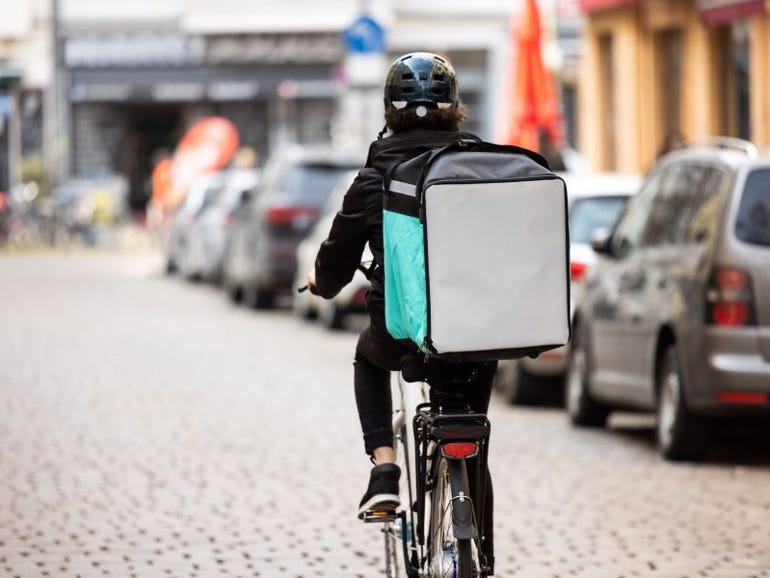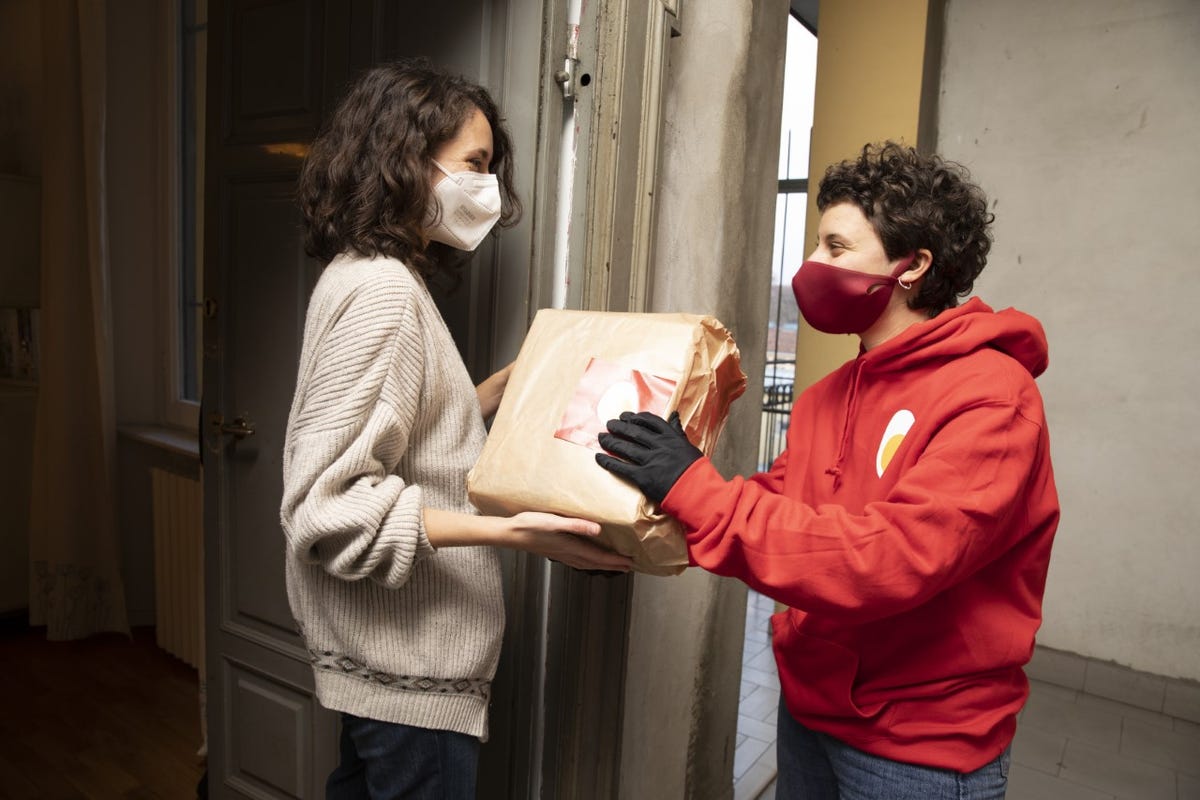
Sick and tired of the gig economy rat race, these delivery startups are taking action
Last Updated on February 6, 2023 by Admin
[ad_1]

With one of the worst unemployment rates in Europe, gig work has become one of few viable options to make a living in Italy during the pandemic.
Image: Luis Alvarez / GETTY
In a country that had one of the highest unemployment rates in Europe even before the virus struck, gig work has become one of the few viable options to make a living in Italy’s post-COVID-19 economy. As more jobless Italians are forced to join the gig economy rat race, riders are competing with an even greater number of colleagues – or rivals, depending on how you look at it – to secure orders from large online delivery platforms.
In Italy, there have been several attempts to regulate the sector. In February, a Milan court fined food delivery platforms Foodinho-Glovo, Uber Eats Italy, Just Eat Italy and Deliveroo Italy €733m for violating employment safety laws. It also said that 60,000 riders that worked for the platform during the last four years should have been hired on a quasi-employee basis.
Fast forward 10 months and little has changed. Among the largest platforms, only Just Eat has started to hire workers on a permanent basis.
SEE: Uber drivers demand to see algorithms, data that determines their working lives
Most riders in Italy continue to work as if they were independent contractors, earning pocket money (as little as €3 euros net per delivery) based on how many deliveries they do in an hour and how far they travel to deliver them.
Other parameters might come into play, but workers do not have full visibility. “The algorithms are not totally transparent. In 2018 we had a meeting with the local representative of a large platform, and he told us he did not know exactly how the system worked,” says Francesca Martinelli, the director of Verona-based think tank Fondazione Centro Studi, who studies platform cooperativism across Europe.
Low salaries are just one of the problems surrounding gig work – not just in Italy, but across the world. From Switzerland to Colombia and from Germany to South Korea, delivery workers often suffer poor pay, unpredictable schedules, and a lack of transparency and trust in their relationships with their employers.
The issue could be addressed at the European level: the European Commission is working on a proposal that would see riders classified as employees by default, and it would be up to the platform providers to demonstrate otherwise. But the draft will need to get the approval of EU members states and the European Parliament before becoming law.
Tired of waiting for a change, some workers in Italy are self-organizing. Following in the footsteps of similar experiments in Spain and France, workers are launching businesses that deliver locally, in a single city, or even in a specific neighborhood, and treat riders as employees, offering permanent contracts, pension contributions and other benefits.
These include cooperatives and limited companies (Ltds) such as Robin Food in Florence, So.De in Milan, Consegne Etiche in Bologna, Food4Me in Verona, Takeve in Rome. Robin Food, the newest of the lot, launched as a cooperative on November 10th. Its seven founding riders earn a fixed amount of €8 per hour, regardless of whether they deliver or not and how much.
But can these small companies take hold and offer an alternative to dire working conditions? Peru-born Evelyn Pereira founded Takeve in Rome as a limited company with a female-only team of riders. The startup launched operations in October, delivering food, beauty and personal care items, toys and other goods. The gender focus was born from two considerations: women’s jobs were hit disproportionately by the pandemic and the delivery sector’s gender gap means the large majority of riders are male. Wages vary depending on shifts, but the company says it offers an €800-per-month base salary for a full-time contract.
Takeve’s women empowerment angle perfectly fits into a more general focus on equity, inclusiveness and sustainability, shared by most of these niche delivery startups. “They aim at reestablishing social bonds in neighborhoods, provide training to workers, and fight exploitation and bad practices,” Martinelli says.
One such case is So.De (short for social delivery), a startup that launched in Milan in early December. “We hired two riders with the social workers contracts. They work across the city and are expected to become a point of reference for residents. We provide bicycles, helmets and clothes, and also train them on how to communicate and behave with citizens,” one of the startup’s co-founders, Teresa De Martin, tells ZDNet.
SEE: Tough new safety laws for gig economy platforms and riders to be introduced in NSW
Part of the idea is also to change the image of the rider: from exploited, overworked person to local ‘ambassador’ of a more sustainable lifestyle. This ethos is even reflected in the uniforms, which are made from recycled plastic.
The funding needed for So.De’s launch was raised partly through a successful crowdfunding campaign that was supported by the municipality.
A private-public collaboration including the municipality, two local cooperatives and the Foundation for Urban Innovations was also instrumental in the launch of Consegne Etiche in October 2020, a books and groceries delivery service in Bologna. Riders earn a net salary of €9 per hour and are hired by the cooperatives with a permanent contract.
All these startups are still very small and cannot compete in scale with the large behemoths. Nor do they want to. “Cooperatives could never totally replace the large platforms, rather complement them. They need to keep their staff small so that everyone can get a stable income. And they usually prefer a B2B approach, which is safer than directly targeting consumers”, Martinelli says.
What these fledgling companies do show, however, is a different model is possible. Riders do not necessarily have to be subject to the whims of opaque algorithms. Humans can still have agency, and be their own leaders.
[ad_2]
Source link




